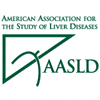 Adding pegylated interferon to Viread (tenofovir) treatment for hepatitis B virus (HBV) raised the likelihood of hep B surface antigen (HBsAg) loss in an ongoing trial, although the cure rate was still below 10 percent, HIVandHepatitis.com reports. Researchers are conducting an open-label trial of 740 people with chronic hep B, excluding people with bridging fibrosis or cirrhosis. Interim results were presented at the Annual Meeting of the American Association for the Study of Liver Diseases in Boston.
Adding pegylated interferon to Viread (tenofovir) treatment for hepatitis B virus (HBV) raised the likelihood of hep B surface antigen (HBsAg) loss in an ongoing trial, although the cure rate was still below 10 percent, HIVandHepatitis.com reports. Researchers are conducting an open-label trial of 740 people with chronic hep B, excluding people with bridging fibrosis or cirrhosis. Interim results were presented at the Annual Meeting of the American Association for the Study of Liver Diseases in Boston.
The study participants were randomly divided into four treatment groups, which took: Viread and interferon for 48 weeks; Viread and interferon for 16 weeks, and then just Viread through to week 48; uninterrupted Viread treatment through the ongoing, 120-week trial; or interferon alone for 48 weeks.
The researchers have data for 72 weeks of follow-up, and they will follow the participants through the study’s 120 weeks.
The greatest decline in HBsAg levels at the end of treatment was among the group taking Viread and interferon. The next greatest decline was among those taking interferon alone, then those on the 16-week Viread combination regimen, and then those on Viread alone.
At the 48-week mark, 7.3 percent of those in the 48-week Viread-and-tenofovir arm had HBsAg loss. Those in the 16-week Viread combination arm and those in the group that only took interferon each had a 2.8 percent rate of HBsAg loss. No one in the group that took Viread alone experienced HBsAg loss.
After 72 weeks of follow-up, those in the 48-week Viread and tenofovir group had a 9 percent rate of HBsAg loss, while the rate stayed the same in the other groups.
To read the HIVandHepatitis story, click here.
Advertisement
Advertisement
Advertisement






Comments
Comments